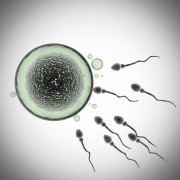The fight to preserve female fertility
Age decreases the chance of getting pregnant and exposes women to an increased risk of conditions threatening fertility

Women who are toying with the idea of having a baby should be aware that age is the major factor leading to female infertility, according to Dr Kannappan Palaniappan, obstetrician and gynaecologist at Sunway Medical Centre in Kuala Lumpur.
“The quality and number of women’s eggs drop with age,” he said. “This decreases the chances of conceiving.”
Although the ability to conceive declines gradually, it drops more quickly once women are in their late 30s. Hence, those who are 35 or older ought to consult a fertility specialist after failing to get pregnant for six months.
Women who are younger than 35, instead, are encouraged to see a doctor if they have tried to conceive for one year with no success. However, they may need to do a check-up earlier if they have thyroid problems, which alter the production of hormones involved in egg growth thus affecting ovulation – the discharge of eggs from the ovaries.
“My advice is to plan the pregnancy as earlier as possible.”
Medical problems affecting fertility
Advanced age is also detrimental to female fertility because it puts women at a greater risk of developing medical problems that may result in the inability to conceive.
“The incidence of conditions like endometriosis and fibroids increases with age as well,” said Dr Palaniappan.
Endometriosis happens when the tissue of the womb grows outside of the uterus and on other parts of the body such as the ovaries or fallopian tubes. During menstruation, this tissue swells and bleeds thus causing pain. Since the blood cannot be released through the vagina, it might accumulate and develop into a cyst.
Although it’s not entirely clear how endometriosis affects fertility, women suffering from the condition find it hard to achieve pregnancy.
“30 to 50 percent of infertile women have endometriosis,” according to the American Society for Reproductive Medicine.
Fibroids represent another widespread problem threatening female fertility. They are benign growths that can be found inside the uterus or on its external wall.
“Fibroids are relatively common, nearly 30 to 40 percent of Malaysian women have fibroids,” said Dr Palaniappan.
Small fibroids are usually harmless, while large ones can obstruct the uterine cavity thus leading to miscarriage.
Treatment options
Getting pregnant is one way to cope with endometriosis.
“Pregnancy stops the period for around one year putting endometriosis under control,” said Dr Palaniappan.
Regular menstrual cycle is the root cause behind endometriosis as it stimulates the lining of the womb leading the endometrial tissue to bleed. Hence, he advises his patients with mild endometriosis to conceive because the pregnancy is usually able to control the condition.
“If patients don’t want to conceive, I advise them to start the contraceptive pill to stop egg growth,” said Dr Palaniappan.
When endometriosis involves the presence of a cyst, surgery is required.
“Surgery is indicated for a huge cyst,” said Dr Palaniappan. “The objective of the surgery is to remove the cyst in order to improve the chance of pregnancy.”
He added that the surgical treatment of choice for endometriosis is laparoscopy – a minimally invasive procedure that minimises pain and allows patients to recover quickly.
“Laparoscopy is definitely better than open surgery because it involves smaller cuts,” he said. “Hence, most patients are able to go back to work within a week.”
Laparoscopy is also indicated for removing fibroids on the wall of the uterus, according to Dr Palaniappan. While hysteroscopy is the most appropriate intervention for fibroids located inside the cavity of the womb because the surgical instrument is inserted through the vagina thus avoiding any incision.
“Hysteroscopy is better than laparoscopy because it can be done as a day-care procedure meaning that patients are admitted in the morning and can go back home on the same day,” he said. “Some patients can even work the day after the operation.”
By contrast, small fibroids on the wall of the uterus do not require surgery but need to be constantly monitored, according to Dr Palaniappan. He added that a tiny fibroid on the wall of the womb is not a concern because women are still able to conceive even if the fibroid is not removed.
 Dr Kannappan Palaniappan is an obstetrician and gynaecologist with Sunway Medical Centre. His areas of expertise include in vitro fertilisation, minimally invasive surgery and gynaecological surgery. He usually performs laparoscopic and hysteroscopy procedures, myomectomy and hysterectomy.
Dr Kannappan Palaniappan is an obstetrician and gynaecologist with Sunway Medical Centre. His areas of expertise include in vitro fertilisation, minimally invasive surgery and gynaecological surgery. He usually performs laparoscopic and hysteroscopy procedures, myomectomy and hysterectomy.
Sunway Medical Centre
5, Jalan Lagoon Selatan, Bandar Sunway
46150 Petaling Jaya, Selangor, Malaysia
Tel: 603-7491 9191
sunwaymedical.com
Related Articles
Three-parent IVF gains approval in the UK
Scientist who pioneered the procedure is pushing for FDA approval to treat infertility in older couples; UK approval may speed the process
Read moreShortcomings drive fertility treatments out of UK
Widespread cutbacks to National Health Service budgets, shortages of donors, and high costs are sending British couples abroad for infertility treatments
Read moreLatest Articles
Medical Care
Clinical Exercise Physiologist (CEP): The Emerging of Exercise is Medicine
How Exercising can be a Medicine
Read moreMedical Care
Reversing type 2 Diabetes: Embracing Hope and Determination
Experience the remarkable journey of Ash and his grandfather Atok as they conquer type 2 diabetes through unconventional methods, showcasing the power of love and determination over adversity.
Read moreMedical Care
Bladder Cancer: What You Need to Know
Empower yourself with our comprehensive guide to bladder cancer. Explore symptoms, diagnosis, treatments, and supportive resources to safeguard your health.
Read more